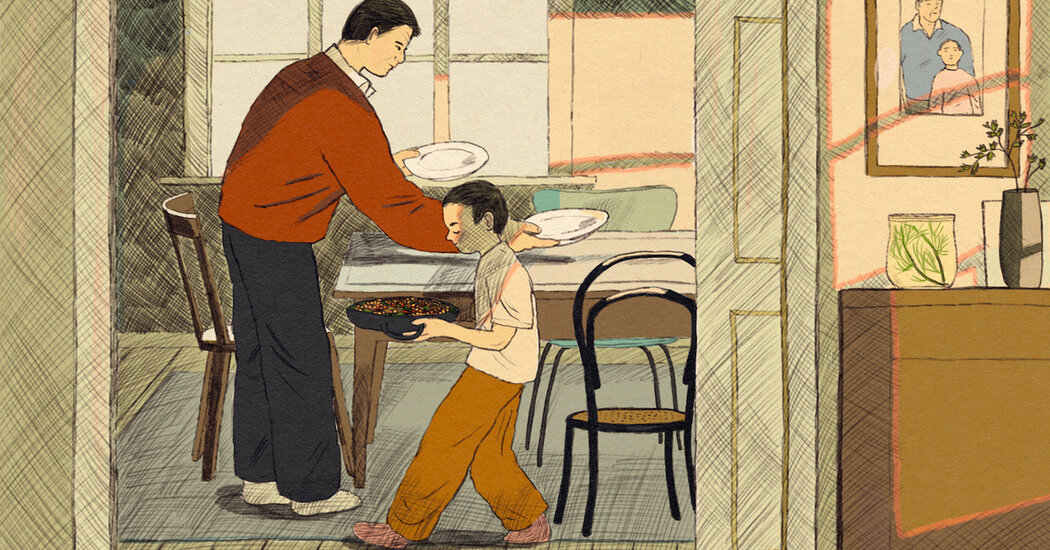
Not long before he died, my father, a doctor, announced that he would write a cookbook of Greek food. The news came as a shock. In England, where he’d spent most of his life, he had shown very little interest in cooking. In Greece, where he was born and where he returned to live much later, he was now fanatical about it. Research began. Tavernas were scouted and recipes recorded. One summer when I visited him, we went together to a restaurant on the island of Paros. There he had discovered fava, a pea or bean purée, yellow and buttery, that he thought was the best he’d ever had. He felt it deserving of a page in his book. I watched him photograph the dish from above, his shirt damp with midafternoon sweat, the cotton pulled tight against his belly, the fava set against a plain white tablecloth.
My father died in 2005, when I was 21 and muddling through that smudge between childhood and becoming an adult. As with our relationship, his cookbook remained a sketch of what it might have become: a collection of notes and pictures, now lost, that I experienced more as an atmosphere than a formal set of instructions. When I was growing up, my father was my entryway to Greek culture, but he was a poor, uninterested translator. He didn’t speak Greek to me when I was young, which I later considered deliberately mean; he rarely insisted on eating Greek food. That he had developed this belated interest always puzzled me.
Sometimes I wonder if the book was his way of reaching out, of passing on what he knew or loved of his culture. He did not leave behind a diary. I do not have any of his letters. What better way to reconnect with him and introduce him to my own young children, whom he never met, than through an attempt at recreating the dishes he once sought feverishly to create himself? My favorite of his recorded recipes, then as now, is revithia me spanaki, chickpeas with spinach, the kind of traditional dish the Greek food writer Vefa Alexiadou has described as “deceptively simple, straightforward and memorable.”
Revithia me spanaki takes 12 hours to prepare, according to some cooks (you must soak the chickpeas), and another hour or so to stew. It’s a simmered comfort food, good as a main and fine on the side. In the winter it’s warming; in the summer it can be eaten cold. It might be described, in contemporary parlance, as a superfood salad. As with other Greek legume dishes, it involves very few ingredients: olive oil, chickpeas, spinach, white onions, a tomato sauce and fresh, finely chopped dill, which is widely used in Greek cooking. Professional pictures of revithia me spanaki sometimes show the chickpeas still fully formed and the spinach still recognizable as leaves — though it’s my experience that everything dissolves into a mess of tasty little clumps.


